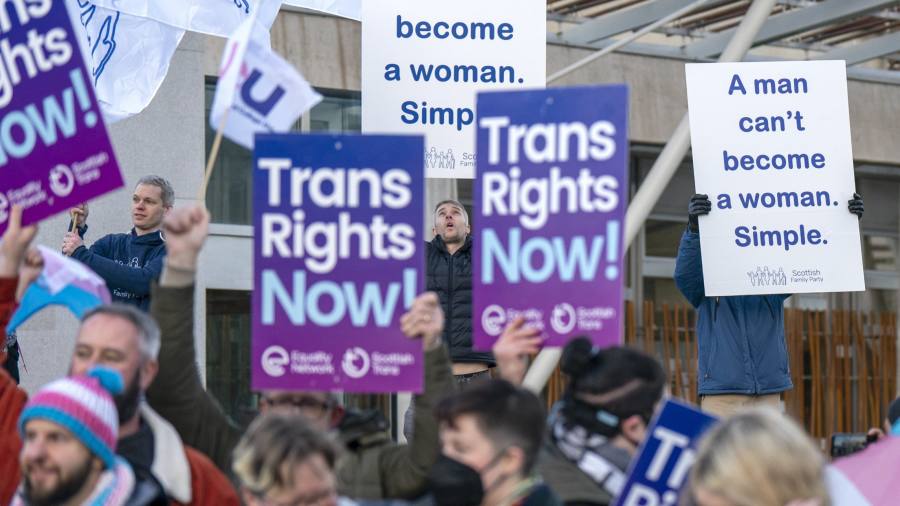
Scotland’s parliament has passed a controversial bill to make it easier for people to legally change their gender, marking a victory for Scottish first minister Nicola Sturgeon.
The legislation has sparked a heated debate within Sturgeon’s Scottish National party, and more widely has drawn in women’s rights activists such as Harry Potter author JK Rowling.
The new rules reduce the age at which people can apply for a Gender Recognition Certificate to 16, from 18. They also remove the need for a medical diagnosis of gender dysphoria.
The change also lowers the period of time that people must live “permanently” with their preferred gender before applying to make a legal change.
Lawmakers in Holyrood on Thursday passed the gender recognition reform bill by 86 votes to 39. During an earlier stage of the vote in October, Sturgeon suffered a rare rebellion, with one minister quitting in order to vote against.
Scotland’s government has argued that the changes are a much-needed administrative reform to a system that was “intrusive, medicalised and bureaucratic”.
The bill was supported by the Green party, whose co-operation provides Sturgeon’s pro-independence SNP with a majority in Holyrood.
While the passage of the bill, which was also supported by Labour and the Liberal Democrat, has been heated, it was always likely to pass with just the Conservatives opposed.
Sturgeon told the Scottish parliament the legislation had been subject to a “full and robust” process and was “possibly the most scrutinised piece of legislation in the history of this parliament”.
The debate over the bill stretched on past midnight for two days as lawmakers sought to make last-minute amendments, most of which were rejected.
Government legal advisers now have a four-week period to examine the bill and determine if it breaches Britain’s equality laws.
Alister Jack, secretary of state for Scotland, said the UK government would “look closely” at the ramifications for UK-wide legislation, including the 2010 Equality Act.
“We share the concerns that many people have regarding certain aspects of this bill,” he said.
Critics of the bill, including some members of the SNP, say it will put women at risk by allowing any male to self-identify as female and gain access to women-only spaces such as refuges. Its supporters argue that its opponents are unfairly stereotyping a marginalised minority.
“I am a feminist . . . and I will do everything I can to protect women’s rights for as long as I live,” Sturgeon said in Holyrood on Thursday. But she said it was also “an important part of my responsibility to make life a little bit easier for stigmatised minorities in our country”.